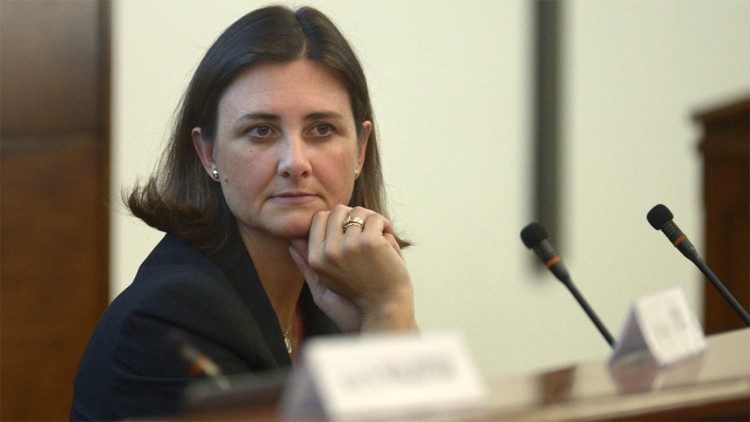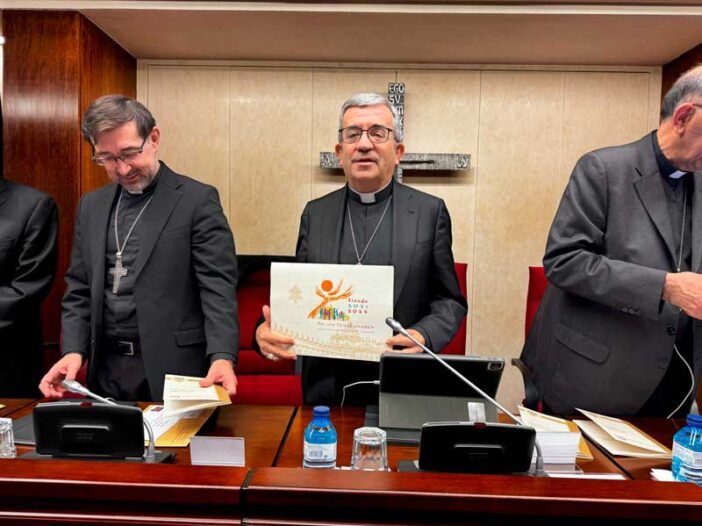Surrogacy: a “market” that urgently needs to be banned
The undersecretary of the Dicastery for the Laity, Family and Life moderated at the UN headquarters in Geneva a meeting on the phenomenon dedicated to the need for international planning to protect women and children from all forms of exploitation

Surrogacy represents “a serious violation of the dignity and rights of women and children,” and the international community “must feel called to reflect on the urgency of establishing an absolute ban” on this practice, as requested by Pope Francis in his speech to the Diplomatic Corps in January of this year.
There is a “global consensus in favor of a strong negative judgment” on this practice “even from different political, ethical and religious positions.”
These are the conclusions proposed by Gabriella Gambino, undersecretary of the Dicastery for the Laity, Family, and Life, who moderated yesterday at the Palais des Nations in Geneva at the meeting. At what price? Towards the abolition of surrogacy: preventing the exploitation and commodification of women and children, organized by the Permanent Mission of the Holy See to the United Nations in Geneva and the Caritas in Veritate Foundation.
“Procreative tourism”
The objective of the meeting, the moderator explained in her introduction, was “to reflect on the urgency of an international response to the phenomenon of surrogacy.” Aware that “procreative tourism” generated by the divergence of State regulations on surrogacy “continues to be the cause of the transnational exploitation of women and children through this practice,” for Gambino it is necessary to “promote a common commitment to guarantee the universal protection of the dignity and fundamental human rights of the people involved.
Right to dignity
The Vatican Undersecretary cited the recent Declaration Dignitas Infinite of the Dicastery for the Doctrine of the Faith of the Holy See (April 2024), when she emphasizes that every child has the right “to have a fully human origin and […] to receive the gift of a life that manifests the dignity of those who give it and those who receive it”. She reiterates that “not all forms of procreation are legal, and that there is no ‘right to a child’ in strictly legal terms that can justify any procreative practice.”
Next, she recalled the problems associated with surrogacy, from the “depersonalization and birth procedure” to the “commercialization and exploitation of women,” on the one hand, and the “objectification of the child,” on the other.
It is also a “form of contextualization of fundamental human relationships, destined to forever affect the identity and life of the subjects involved.”
Other interventions
Following Gambino’s presentation, Eugenia Roccella, Italian Minister of Family, Birth and Equal Opportunities, took the floor to talk about surrogacy from the perspective of Italian legislation.
Next, Olivia Maurel, spokesperson for the Casablanca Declaration and leader of the campaign for the universal abolition of surrogacy, conceived in Kentucky (United States) by a surrogate mother, spoke, analyzing the issue from the perspective of child rights in the childhood.
The third speaker was journalist and writer Eva Maria Bachinger, co-founder of the Stop Surrogacy initiative in Vienna in 2015 and author of three books on this topic, who evaluated the issue of surrogacy from the perspective of women’s rights.
And finally, Bettina Roska, Legal Officer at ADF International in Geneva, analyzed the issue in its legal dimensions, drawing an overview of the international legal landscape and highlighting gaps and challenges.
Related

“The priest finds his reason for being in the Eucharist”
Fundación CARF
01 April, 2025
5 min

Family Valued: An international appeal for the family
Exaudi Staff
01 April, 2025
2 min

Bishop Luis Argüello Addresses the Challenges of the Church in Spain
Exaudi Staff
01 April, 2025
2 min

THE WAY OF THE CROSS: Accompanying Jesus on the way to the Cross
Luis Herrera Campo
31 March, 2025
5 min
 (EN)
(EN)
 (ES)
(ES)
 (IT)
(IT)

